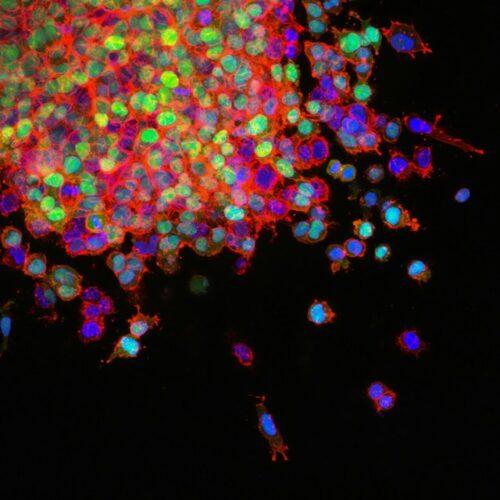Business
How Stem Cell Therapy Can Benefit Those With Lyme Disease

Lyme Disease, stemming from the bacterium Borrelia burgdorferi, poses a multifaceted challenge affecting numerous individuals globally. Traditional treatment methodologies primarily target symptom alleviation. However, in recent years, an innovative paradigm has surfaced – stem cell therapy. This avant-garde medical intervention exhibits encouraging outcomes in tackling the fundamental origins of Lyme Disease, instilling newfound optimism for those grappling with its incapacitating repercussions. (Also Know About 5 Important Facts About Pediatricians)
Table of Contents
Comprehending Lyme Disease:
Researchers are diligently exploring the therapeutic potential of utilizing stem cells for Lyme disease, aiming to revolutionize treatment strategies and offer new avenues of hope for those affected by this complex condition.
Transmitted through the bite of infected ticks, the bacterium can disseminate throughout the body, eliciting an array of symptoms such as fatigue, joint pain, neurological complications, and, in some cases, cardiac issues.
This insidious dissemination underscores the challenges in Lyme Disease management. While conventional treatments, including antibiotics, may offer transient relief, a substantial number of patients persistently endure symptoms, emphasizing the pressing need for innovative approaches like stem cell therapy in the ongoing quest for effective and lasting solutions.
The Role Of Stem Cell Therapy:
Stem cell therapy entails harnessing the body’s master cells, known as stem cells, to meticulously mend, replace, and regenerate impaired tissues. In the context of Lyme Disease, this groundbreaking approach aims not only to address symptoms but also to rectify the underlying damage inflicted by the infection.
Stem cells, with their pluripotent nature, possess the unique capability to metamorphose into diverse cell types, rendering them an extraordinarily potent tool for fostering healing and comprehensive tissue rejuvenation.
This transformative potential underscores the profound impact that stem cell therapy could have in restoring health and vitality to individuals grappling with the complexities of Lyme Disease.
Immune System Modulation:
A primary hurdle in Lyme Disease is the bacterium’s adept evasion of the immune system, resulting in chronic infections. The persistent nature of the infection poses ongoing challenges for conventional treatments.
Stem cell therapy exhibits promise in modulating the immune response, augmenting the body’s ability to recognize and combat the persistent infection effectively.
By bolstering the immune system’s efficacy in targeting and eradicating the bacteria, stem cell therapy presents a potential breakthrough in addressing the root cause of Lyme Disease, offering a renewed sense of optimism for patients seeking relief from this enduring and challenging condition. (Excited to know about How To Find An Addiction Treatment Center Near You)
Tissue Repair And Regeneration:
Lyme Disease inflicts damage on various tissues, impacting joints, nerves, and the cardiovascular system. Stem cells possess the remarkable aptitude to differentiate into specific cell types, facilitating the repair and regeneration of impaired tissues.
This facet of stem cell therapy not only holds the potential to significantly enhance the quality of life for individuals contending with persistent symptoms like chronic pain and neurological issues but also offers a promising avenue for fostering long-term recovery and improved functional outcomes.
Anti-Inflammatory Effects:
Chronic inflammation, a defining feature of Lyme Disease, sustains the debilitating symptoms endured by patients. Stem cells showcase formidable anti-inflammatory properties, actively contributing to the mitigation of inflammation linked to the infection.
This holistic approach in addressing the inflammatory dimension of the disease through stem cell therapy not only manages Lyme Disease symptoms effectively but also plays a pivotal role in fostering overall well-being. This multifaceted impact underscores the potential of stem cell therapy to provide comprehensive relief for individuals grappling with the complexities of Lyme Disease.
Neurological Support:
Lyme Disease frequently impacts the nervous system, inducing symptoms such as cognitive impairment, memory loss, and nerve pain. Stem cell therapy demonstrates the capacity to provide neurological support by facilitating the regeneration of damaged nerve cells, improving synaptic connections, and enhancing overall brain function.
This potential breakthrough holds promise not only for alleviating immediate symptoms but also for fostering long-term cognitive resilience in individuals grappling with the enduring neurological effects of Lyme Disease. The restoration of cognitive functions contributes to a more comprehensive and sustained improvement in the overall quality of life for those affected by this challenging condition.
Conclusion:
While stem cell therapy for Lyme Disease is still in its nascent stages of research and development, the encouraging outcomes observed thus far inspire hope for those contending with this formidable condition. The potential advantages of immune system modulation, tissue repair and regeneration, anti-inflammatory effects, and neurological support position stem cell therapy as a compelling avenue for further exploration in Lyme Disease treatment. (Interesting Topics For You Top 5 Mesotherapy Brands For Skin Rejuvenation In 2023)

-

 Business4 years ago
Business4 years agoHow to Do Long-Distance Moves with Children
-

 Business2 years ago
Business2 years agoThe Ultimate Guide To Thriving In Your Printing Franchise
-

 Business2 years ago
Business2 years agoExploring The Benefits And Challenges Of Restaurant Franchising
-

 Tech4 years ago
Tech4 years agoCyber Table That Will Change Your Life
-

 Business5 years ago
Business5 years agoIs Guest Posting a Good Inbound Marketing Strategy?
-

 Lifestyle2 years ago
Lifestyle2 years agoDallas’ Hidden Gems: 6 Must-Try Restaurants Off The Beaten Path!
-

 Lifestyle3 years ago
Lifestyle3 years agoTop 10 Restaurant Franchises In The US
-

 Business2 years ago
Business2 years agoTop 10 Reasons You Should Invest In A Coworking Franchise













Recent Comments